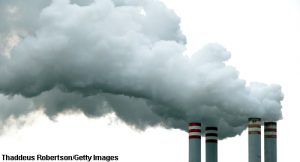 Research Suggests Climate Changes May Negatively Affect People with Rheumatic Disease
Research Suggests Climate Changes May Negatively Affect People with Rheumatic Disease
Editor’s note: ACR on Air, the official podcast of the ACR, dives into topics important to the rheumatology community, such as the latest research, solutions for practice management issues, legislative policies, patient care and more. Twice a month, host Jonathan Hausmann, MD, a pediatric and adult rheumatologist in Boston, interviews healthcare professionals and clinicians on the rheumatology front lines. In a series for The Rheumatologist, we provide highlights from these relevant conversations. Listen to the podcast online, or download and subscribe to ACR on Air wherever you get your podcasts. Here we highlight episode 56, “How Environmental Factors Impact Rheumatology,” which aired on June 20, 2023.
Physicians in many specialties are already aware of the health effects of climate change, such as how smoke from wildfires may affect a patient’s breathing capacity. Although the connection between climate change and rheumatology isn’t well established, many suspect there could be negative effects for rheumatology patients.

Dr. Dellaripa
That’s where Paul Dellaripa, MD, a member of the Division of Rheumatology at Brigham and Women’s Hospital, Boston, and founder of its Interstitial Lung Disease (ILD) Clinic , focuses his energy. Dr. Dellaripa, an associate professor of medicine at Harvard Medical School, with fellowships in both rheumatology and critical care, discussed the ways increases in heat, pollution and allergens related to climate change may negatively affect people with rheumatic disease.
Why It’s Important
First, Dr. Dellaripa discussed the known effects of climate change on those with cardiac, pulmonary and other chronic diseases.
“[Because] many of our patients have systemic diseases, it seems to make sense that those effects of climate—whether it’s heat or smoke or pollution—could theoretically affect our patients as well,” he said. “Just because we have not studied this relationship in great detail doesn’t mean that it’s not happening or going to happen. We very much need higher quality investigations into the links between climate change and health, and we also need to prepare ourselves and our patients.”
Dr. Dellaripa referred to some specific examples related to climate and health, such as wildfires causing significant exacerbations of asthma and allergies, leading to an increase in hospitalizations.1 Cardiologists have examined exacerbations due to wildfire and pollution exposure related to sudden death and congestive heart failure.2 Nephrologists have looked at populations that have been exposed to heat and found new risks of renal disease.3



